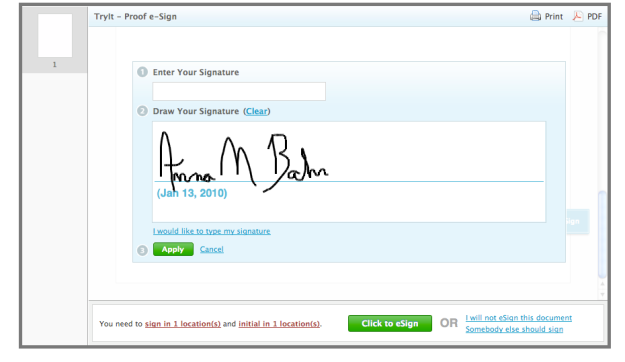
You can say goodbye to your fax machine: Adobe has purchased electronic-signature startup EchoSign, the company announced today in a press release. The amount of the acquisition was not disclosed.
EchoSign is a web-based electronic signature company. Their product allows users to sign documents on their computer. Adobe says it will now incorporate the EchoSign technology into is online document exchange services platform, which will allow users to sign and return important documents without the use of printers, fax machines or mail-delievery methods.
“By reducing the time and costs of having documents signed with traditional methods, such as fax and overnight envelopes, the EchoSign solution can enable customers to significantly accelerate sales cycles, improve tracking and centralize the management of signed agreements through a simple to use cloud service,” writes Adobe in its announcement.
EchoSign currently has around three million users, which includes customers of Time Warner Cable, CIGNA and Google Apps.
“Bringing together EchoSign’s ease of use for contracting on the Web with Adobe’s brand, reach and trust in the document space, I fully expect that electronic signatures will soon become the common way for people to sign documents,” says EchoSign CEO Jason Lemkin in a statement. “With nothing to download, learn or install, there is simply no faster or more secure way for organizations to sign, track or file contracts – and close more business quickly.”
To compliment the lack of need to use paper in signing transactions, EchoSign has taken an aggressive approach toward the adoption of clean energy. According to its website, the company powers its servers and hardware with 100 percent wind-generated electricity. Adobe did not immediately respond to our request for comment on whether it would enable EchoSign operations to continue the green energy initiative, but we should have more information about this soon.
As far as we can tell, this is a good move for everybody. Adobe’s products will be vastly improved with EchoSign’s technology. And users will soon be able to more easily go through the tedious process of sending, signing and returning important documents.


